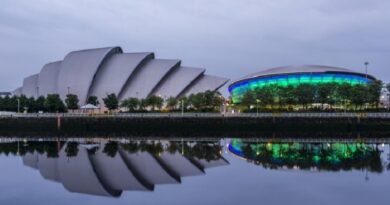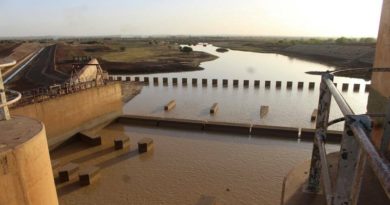Panama develops eleven NAMA initiatives to implement Paris Agreement
In an effort to demonstrate its commitment to the historic Paris Agreement signed by more than 170 nations last December in Paris, France, Â the Republic of Panama has developed an eleven Nationally Appropriate Mitigation Actions (NAMA).
Under last December’s historic Paris Climate Change Agreement, all countries committed to reducing greenhouse gas (GHG) emissions through their Nationally Determined Contributions (NDCs.) For developing countries, an important means to achieve their NDC targets under the Paris Agreement is through their Nationally Appropriate Mitigation Actions (NAMAs), which are plans they have already developed under the UNFCCC.
Panama is an example of a country building on NAMAs as a significant component of its low-emissions development plan. It has developed a portfolio of 11 NAMAs covering a wide range of sectors (energy, transport, waste, agriculture and industry), which will improve national environmental management and account for a combined reduction of more than 30 million tonnes of CO2 equivalent per year.
Beyond reducing GHG emissions, the Paris Agreement further emphasizes the need for international climate finance for mitigation and to ensure transparency of mitigation actions, all of which are important elements of NAMAs. Panama sees its NAMA Portfolio as an important mechanism to attract the necessary resources to promote the transition towards a low-carbon economy.
The implementation of these eleven public and private projects in Panama will not only reduce GHG emissions, but also promote social equity by decreasing social and economic differences nationwide. Below are the descriptions of each NAMA.
Energy Efficiency NAMA
The Energy Efficiency NAMA emerges under the framework of Panama’s Programme for the Rational and Efficient Use of Energy (UREE), which aims to reduce emissions in the residential, industrial, commercial and service sectors. It is estimated that the energy saving potential of this NAMA could reach 40% by 2030.
Green State Policy NAMA
The Green State Policy NAMA will focus on energy efficiency, water efficiency, fuel for internal and external mobilization, and waste management. Additionally, the NAMA will provide incentives for public entities to purchase goods and services characterized by their low carbon and water footprints.
Panama City and Bay of Panama Sanitation NAMA
This NAMA will focus on the third phase of the Panama City and Bay of Panama Sanitation Project begun in 2012 and seeks to build a wastewater collection and treatment system in the west of the country. It is likely to become a role model for wastewater management projects in Latin America.
Zero Latrines NAMA
The Zero Latrines NAMA strives to strengthen national GHG emissions mitigation efforts by installing sanitary toilets in 33% of houses in Panama and building wastewater treatment systems. The biogas produced by these treatment systems will be used to supply rural communities that largely use firewood for cooking, with cooking gas.
Sustainable urban mobility NAMA
The Urban Mobility NAMA seeks to implement a series of transport-oriented-development policies and initiatives in Panama City’s metropolitan area within the next 30 years, including an integrated system for the public transport of passengers and investment in urban mobility infrastructure. This is the Panama flagship NAMA as it will benefit half of the population. It will be the first Panamanian project requesting support from the Green Climate Fund.
Landfills Closure and Sustainable Waste Management NAMA
Only 54% of the solid waste Panama currently generates is properly treated, while the rest is burned in open dumps without environmental controls. By adapting landfills to international technical and sanitary requirements, this NAMA will result in emission reductions from the waste sector, while reducing air and water pollution.
Cement NAMA
Currently, the cement industry uses a large amount of a carbon-intensive fuel, known as coke. This NAMA seeks to avoid the use of coke through a programme to co-process municipal waste to produce cement. It will lead to sizeable emission reductions from the cement industry, while greatly decreasing urban and water pollution.
Swine NAMA
The Swine NAMA seeks to install biodigesters in four Panamanian cities for the treatment of swine waste, thus enabling farmers to recycle their waste and generate clean energy in a cost-effective manner.
Poultry NAMA
The Poultry NAMA will process chicken manure to generate power for the use of poultry production plants, and the surplus will be sold to the grid. The highly-efficient ovens used for processing the manure have a lifespan of 25-30 years and will produce clean power for use by poultry production sites in lieu of electricity from the grid.
HFCsHCFCs and HFCs Recycling NAMA
The Hydrochlorofluorocarbons (HCFCs) and Hydrofluorocarbons (HFCs) typically used in refrigeration equipment are considered highly harmful for the environment. The HCFCs & HFCs recycling NAMA has the potential to recycle approximately 50% of the country’s refrigerants, thereby greatly reducing the release of harmful gases into the atmosphere.
Power Generation from Rice Husk NAMA
With approximately 80kg of rice consumed per capita per year in Panama, this NAMA involves producing electricity from the combustion of biomass derived from the processing of rice husks. The electricity generated will supply the energy demand of the rice processing plant and the surplus will be provided to the grid. The HCFCs and HFCs Recycling NAMA is the first NAMA officially reducing emissions, as it started operations in mid-July.
Panama sees the NAMA Portfolio as one of the necessary mechanisms to attract financial and economic resources through national and international tools that promote the transition towards a low-carbon economy.
The implementation of these eleven public and private projects will not only reduce GHG emissions, but also promote social equity by decreasing social and economic differences nationwide.



